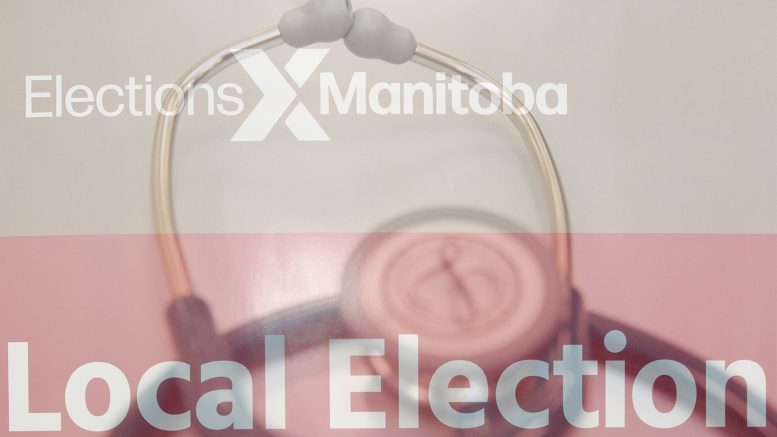Student voter priorities are at the forefront of concern for UMSU as the 2023 provincial election in October moves closer. One issue currently top of mind is the reinstatement of international student health-care coverage.
In 2018, the Progressive Conservative (PC) government under former premier Brian Pallister cut universal health care for international students to save approximately $3.1 million. To replace universal health care, international students must pay an annual fee of $1,032 to access coverage.
If elected, both the Manitoba Liberal Party and Manitoba New Democratic Party (NDP) have committed to reinstating international student health-care coverage.
Manitoba Liberal Party leader Dougald Lamont believes reinstating international health care is the “humane” thing to do. Without it, it’s inefficient for students to receive proper care.
“There’s no justification for it, even to save money,” said Lamont. “Every single justification the PCs have offered is false, and frankly, cruel.”
Wab Kinew, leader of the Manitoba NDP, said he wants institutions to have the ability to attract international students choosing between universities like UBC and U of M by letting them know Manitoba will cover their healthcare costs.
“It does take away that competitive advantage that the post secondaries of Manitoba had when they’re making their pitch to international students,” Kinew said.
UMSU international students’ representative Andrea Nguyen, who previously lived in Alberta, where international students are covered by universal health care, said the policy does make other provinces more attractive for post-secondary education.
The PC government does not appear to be changing its position on health care for international students and no members of the PC party were present at a student-led rally about the issue in October 2022.
The office of provincial Minister of Health Audrey Gordon did not respond to multiple requests for comment.
On UMSU’s advocacy work, vice-president advocacy Liam Pittman said this year the union has met with MLAs from both the NDP and PC parties, where the issue of international student health care is always advocated for in government meetings. The executive also plans to reach out to the Liberal party for a meeting.
While meetings have occurred between UMSU and provincial MLAs, Pittman noted the executive has been unable to secure a meeting with Gordon. However, a meeting between Minister of Advanced Education and Training Sarah Guillemard and UMSU representatives was held on Aug. 23, where UMSU raised the significance of international student coverage. In 2019 alone, international students brought $400 million into the provincial economy.
“I am no mathematician, but $400 million is over 100 times the cost of the health care,” Pittman said.
Nationwide, international students contributed approximately $21.6 billion to Canada’s gross domestic product, and approximately 170,000 jobs across Canada in 2018.
In 2022, the Manitoba Alliance of Post-Secondary Students (MAPSS) sent a brief to Manitoba MLAs urging them to reinstate health-care coverage for international students, citing that the average cost of obtaining a degree in Canada as an international student is $135,000. On top of that, Manitoba charges the highest health-care premium out of all participating provinces.
As a solution, MAPSS recommended the province introduce a health care buy-in model. The model would cost international students $595 to buy into and be covered by the provincial health-care system.
In his role as vice-president advocacy, Pittman plans to continue researching other avenues to push the government into the direction of reinstating international student health care.
The lack of health care for international students is not just a financial strain. Both Kinew and Lamont noted it is also an issue of human rights and feeling valued within the province.
Lamont said international students are one of the biggest groups of future Manitobans through Manitoba’s Provincial Nominee Program.
“Don’t feel that just because one political party has done this, that everybody feels the same way,” Lamont said. “You belong here, and we want to make sure you stay.”
Instead of the message being sent currently by the province, Kinew said his government would stand behind one oriented toward the future of Manitoba.
“If we say right off the bat to an international student that’s arriving here, ‘you know what, we view you as part of the province, we’re going to work towards covering health services for you because we want you to stay here after graduation,’ I think that’s a strong message,” Kinew said.
Nguyen said the barriers go beyond having to pay for health care itself.
In her past and current roles within the Science Students’ Association and UMSU, Nguyen has had to assist students in navigating how to submit claims and be reimbursed for certain health-care services.
Lamont, a former lecturer at the U of W, said policy choices such as the health-care cut can also have a ripple effect onto other individuals.
“You’ll have people who are having mental health crises and you know professors are having to step up and support people individually,” said Lamont.
With a provincial election on the horizon, taking action on student issues including health-care coverage can be a crucial point for policy change.
Lamont emphasized that, with a campus of nearly 30,000 students, U of M students need to know they can make a difference in this election on issues like health care.
“Ultimately the thing that will make a difference is electing people who are going to support you, and that can happen,” said Lamont.
“International students can also work and volunteer on campaigns. They’re still Manitobans ―they still have a right to be part of our democracy.”




